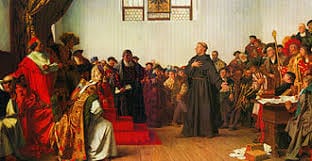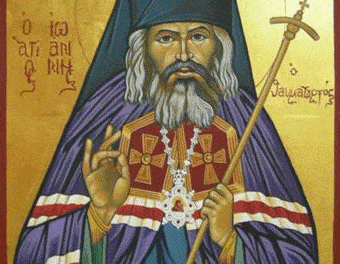This episode is titled, Kant.
At the conclusion of episode 115 –Part 2 of The Rationalist Option, I said we’d return later to the subject of the philosophy of the Enlightenment to consider its impact on theology and Church History. We do that now.
We saw that John Locke placed a wedge between faith and reason when his system of Empiricism said the only genuine knowledge was that of experience. But repeated experiences generated a kind of knowledge he called probability. Because we experience the same thing again and again, we have reason to assume the likelihood of it continuing to happen. I used the example of a friend we’ll call “George.” We see and hear George at least weekly. So, even when George isn’t in our immediate presence, we have good reason to conclude he probably still exists.
Using the rule of probability, Locke regarded the Christian Faith as reasonable. His repeated experience of the world logically required a sufficient cause for it. He found the Bible’s explanation of creation and the subsequent course of history to align with his experience of it. But, Locke maintained, Christianity provided no knowledge a reasoned examination of experience would discover on its own.
Then along came the empiricist David Hume who wielded Doubt like a cudgel. If Locke placed a wedge between faith and reason, Hume is the one who wielded the sledge and broke them apart. His skepticism went so far as to claim the common-sense notion of cause and effect was an illusion. He had nothing but disdain for Locke’s idea of Probability.
Hume said all we can know for certain is what we are experiencing at that moment, but we can’t know with certainty that one thing gives rise to another, no matter how many times it may be repeated. It may in fact at some time and place NOT repeat that pattern. So to draw universal laws from what we experience is forbidden. Hume didn’t just regard faith as irrational, his critique cast doubt on reason itself. Empiricists and Rationalists were set at odds with each other.
Hume and his Empiricist buddies weren’t without their opponents. A Scot named James Reid published An Inquiry into the Human Mind on the Principles of Common Sense in 1764. Reid argued for the value of self-evident knowledge or what he called “common sense.” His position came to be known as Common Sense Philosophy. It had many adherents among the growing number of Deists.
In France, Baron de Montesquieu, applied the principles of reason to theories of government. He came to the conclusion a republic was the preferred form of government. Since power corrupts, Montesquieu said government ought to be exercised by three equal branches that would balance each other: the legislative, executive, and judicial. He proposed these ideas thirty years before either Americans or the French adopted them for their political systems.
Shortly after Montesquieu, Jean Jacques Rousseau suggested what the rationalists called Progress, wasn’t! Enlightenment thinkers generally regarded human history as a record of advance from lesser to greater sophistication = Progress! Societies were moving on from backward barbarianism to advanced civilization. The Enlightenment’s emphasis on Reason was evidence humanity was emerging from the pre-scientific belief in religious superstition into a new era of rationalism. But Rousseau argued much of what people considered progress was in reality a departure from their natural state that was contrary to human flourishing. He called the modern world of his day “Artificial.” Rousseau advocated a return to the original order, whatever that was. He lauded the noble savage who lived in a pure state unfettered by the conventions and inventions of modernity. Whatever government there was ought to serve rather than rule. Religion ought to be a thing of the lowest common denominator with no one telling anyone else what to believe or how to worship. Rousseau defined that lowest common religious denominator as belief in God, the immortality of the soul, and moral norms. Which sounds a lot like Rousseau contradicted the very thing he said no one could do; tell others what to believe. It’s a classic case of “Believe whatever you want, as long as you agree with me.” An oft-repeated position of skeptics.
At the close of the 18th C, along came a German philosopher who blew everything up. Many consider Immanuel Kant the central figure of modern philosophy.
Before we dive in, I need to pause and say I barely grasp Kant’s ideas. Seriously. Right about the time I think I’m getting a handle on his philosophy, he says something that makes it all slip away. I hope when I teach, I make things clearer, not more obscure. Kant tries to clarify but his thoughts move in a realm far beyond my minuscule capacity. I just can’t get Kant.
The best I can do is seek to explain Kant’s ideas as others have expressed them.
Kant was born in 1724 in the city of Konigsberg in Prussia to Pietist parents. He was a capable student but no standout. At 16, he began studies at the University of Konigsberg where he ended up spending his entire career. He studied the philosophy of Leibniz and Wolff and the new mathematical physics of Englishman Isaac Newton. When his father had a stroke on 1746, Kant began tutoring in the villages around his hometown.
Kant never married but had a rich social life. He was a popular author and teacher, even before publishing his best-known philosophical works.
Kant was a firm believer in rationalism until he was awakened from his, as he called it, “dogmatic slumber” by reading David Hume.
In the work for which Kant is best known, his 1781, Critique of Pure Reason, he proposed a radical alternative to both the skepticism of Hume and the rationalism of Descartes. According to Kant, there’s no such thing as innate ideas. But there are fundamental structures of the mind, and within those structures, we place whatever our senses perceive. Those first and most important structures are time and space; then follow what he called twelve categories; unity, plurality, quantity; quality; reality, negation, limitation, subsistence, causality, relation; possibility, and necessity. Did you get that? Don’t worry there won’t be a quiz.
Kant said time, space, and the twelve categories aren’t something we perceive with our senses. Rather, they’re structures our minds use to organize our perceptions. In order to be able to USE or process a sensation, we have to put it into one of these mental structures. It’s only after the mind orders them within these categories that they become intelligible experiences.
Kant claimed no one really knows a thing as it is in itself. What we know is only what’s going on in the activity of our minds. It’s our perception of a thing we know – not the thing ITSELF as it is.
Let me say that again because it’s the key to understanding Kant’s contribution to Modern Philosophy, and in that, to a large part of how the modern world thinks. It’s our perception of a thing we know – not the thing ITSELF as it is.
An illustration may help. We’ll make this pleasant too.
Let’s say you and I are on the Big Island of Hawaii. We’re both looking at a black sand beach at sunset. The sun is a golden orb sinking into a blue ocean. A half dozen palm trees stand in dark silhouette against a multi-colored sky of deep blue, fading to indigo, and morphing to scarlet and orange.
Now, I just gave names to several colors. But those are just labels that come from categories in my mind I sort what my eyes see into. You do the same. But how could we know if what I experience as “orange” is the same as what you know as “orange.” Maybe my orange is your blue. My black might be your white. But since we’ve always labeled what we perceive by those labels, that’s what they are to us. Maybe if what you and I perceive were to be somehow traded, we’d freak because of the messing with our categories it just played.
Kant said that with knowledge, what we know isn’t things as they are in themselves, but rather what our minds interpret them as. So à There’s no such thing as purely objective knowledge, and the pure rationality of Cartesians, Empiricists, and Deists is an illusion.
If true, Kant’s work meant many of the arguments used to support Christian doctrine no longer worked. If existence isn’t an objective reality, but just a category of our mind, there’s no way to prove the existence of God, the soul, or anything else. Descartes would be stuck at “I think, therefore I am.” He could go no further than that.
Kant, like many Enlightenment thinkers, was loath to give up completely on the existence of God. They wanted to hang on to it. But with Kantian philosophy, faith and reason become utterly separated from each other. While many found Hume’s determined skepticism hard to accept, Kant’s redefinition of knowledge as merely a state of the mind was far more appealing.
Kant dealt with religion in several of his works—particularly in his Critique of Practical Reason, published in 1788. There he argued that, although pure reason can’t prove the existence of God or the soul, there’s “practical reason” that has to do with the moral life, and whose procedure is different from that of pure reason. But this practical reason, becomes a concession, a nod to those who can’t operate by the higher pure reason. It didn’t take long for others to realize practical reason was like philosophical training wheels that had to come off if humanity was to move forward as rational creatures.
Kant’s significance to religion and theology goes far beyond his uninspired attempts to ground religion in practical morality. His philosophical work dealt a death blow to the easy rationalism of his predecessors, and to the notion it’s possible to speak in purely rational and objective terms of matters like the existence of God and the soul. Following Kant, theologians tended to accept his divorce of faith and reason. Eventually, some questioned the universality and immutability of his categories of the mind, arguing that things like psychology, culture and even language shape the categories. Kant’s work, which in some ways was the high point of modern philosophy, set the stage for the post-modern critique of the insistence on objectivity and universality as signs of true knowledge.
And, we’ll call it quits for this episode for two reasons.
First – I’m on vacation and my wife is calling me to watch that sunset with her.
Second – My head hurts. I can’t deal with Kant’s mental gymnastics.






You are a tease, describing your vacation spot like that. Hope you’re having a great time!
The wife and I had a great & relaxing time. Much needed.